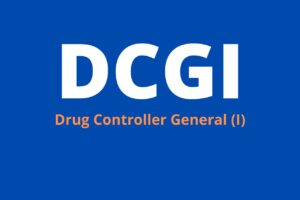Last Updated on December 31, 2023 by The Health Master
Revised Schedule M
In a bid to align with the directives set by the Union health ministry, which mandates the pharma industry to adhere to the revised Schedule M within 6 to 12 months, the Gujarat Food and Drug Control Administration (FDCA) recently orchestrated an informative workshop.
The event took place on the premises of Himatnagar Municipality, nestled within the Sabarkantha district of Gujarat.
This workshop attracted the participation of around 75 Micro, Small, and Medium Enterprises (MSMEs) operating within the pharmaceutical sector.
Gujarat’s Pharma Landscape Flourishes:
A noteworthy feature of the region’s pharmaceutical landscape is the impressive tally of more than 1,081 units adhering to WHO-GMP standards and an additional 140 drug manufacturing units granted approval by the USFDA.
This dominance cements Gujarat’s stature as a pharmaceutical hub in India.
MSMEs
The country boasts an approximate total of 10,500 manufacturing units, with a substantial proportion of about 8,500 falling under the MSME category.
India, recognized as a prominent exporter of medicines, particularly to low- and middle-income countries, relies heavily on WHO-GMP certification.
A notable inclusion in this regard is the presence of nearly 2,000 units within the MSME category, each proudly boasting WHO-GMP certification.
Also read: Understanding GMP, cGMP, and WHO-GMP
Reinforcing Regulatory Compliance for Revised Schedule M
Dr. H. G. Koshia, the Commissioner of Gujarat FDCA, elucidated, “Our plan involves the organization of several similar workshops in the near future.
The need to revisit and recalibrate the principles encompassed within Schedule M is necessitated by the evolving dynamics of Good Manufacturing Practices (GMP).
Our emphasis on risk-based inspections has provided us with valuable insights to fortify regulatory measures and implement the revised guidelines systematically.
Such a strategic move is imperative to remain abreast of the rapidly evolving global manufacturing and quality standards while catering to the requirements of over 200 export destinations.”
Evolving Certification Standards:
The WHO-GMP certification comes with a validity period of three years, with any infringement leading to the revocation of licenses and the imposition of financial penalties.
Notably, the Union health ministry unveiled the deadline on August 2, 2023.
This stipulated a six-month window for small-scale manufacturers and a more lenient twelve-month allowance for larger units to secure their World Health Organization-Good Manufacturing Practices (WHO-GMP) certification.
The groundwork for this process was laid in 2018 with the issuance of a draft notification, aimed at elevating Schedule M to align with international benchmarks.
Unveiling Industry Insights:
The imperative to reassess the existing GMP regulations and Quality Management Systems (QMS) stemmed from ongoing risk-based inspections conducted by the Government.
This comprehensive review exposed certain pharmaceutical entities for their unethical practices, encompassing deficient documentation, the absence of rigorous processes and analytical validations, and an inadequate commitment to self-assessment and quality failure investigation.
Decoding the Essence of GMP and Revised Schedule M
At their core, Good Manufacturing Practices (GMP) are non-negotiable standards designed to infuse quality into products by tightly governing materials, methods, machinery, processes, personnel, and the overall environment.
These GMP standards were initially enshrined within Schedule M of the Drugs and Cosmetics Rules, 1945, during 1988.
The regulations underwent a final amendment in June 2005. Notably, the revised Schedule M now integrates WHO-GMP standards.
Key Transformations on the Horizon:
The implementation of the revised Schedule M ushers in significant alterations that ripple across the pharmaceutical realm.
Few noteworthy changes:
- Pharmaceutical quality system (PQS),
- Quality risk management (QRM) practices,
- Mandatory product quality reviews (PQR),
- Strict equipment qualification and validation,
- Improved change control management,
- Self-inspection procedures,
- A dedicated quality audit team,
- Audits and approvals for suppliers,
- Stability studies in accordance with recommended climate conditions,
- Validation protocols for GMP-related computerized systems.
As the pharmaceutical landscape readies itself to embrace these progressive changes, Gujarat stands as a vanguard in implementing the revised Schedule M, demonstrating a steadfast commitment to pharmaceutical excellence and global regulatory standards.
Disclaimer: This article contains information derived from the source mentioned below. Our team utilized an AI language model to rewrite and present the news or article in a unique format.
Quality Assurance in the Pharmaceutical Industry
Duties and responsibilities of QA person in Pharma Industry
Understanding GMP, cGMP, and WHO-GMP
Difference: Disintegration and Dissolution test in pharma industry
Understanding DQ, IQ, PQ, and OQ in the Pharma Industry
Dissolution test: Importance in Pharma Industry
NSQ Drug: Route cause analysis and CAPA
Types of inspections done by USFDA: Read in detail
USFDA issues Form 483 to Pharma Companies: Let’s know all about it
Licensing procedure for manufacturing of Drugs
Procedure to obtain License to Manufacture drugs for testing and analysis purposes
Latest Notifications regarding Pharmaceuticals
Latest Notifications: D&C Act 1940
Latest Notifications: D&C Rules 1945
Latest Notifications: Banned Drugs
Latest Notifications: NDPS Act
Drug recall: Glenmark recalls this High BP drug due to quality reasons
Trademark Protection of medicine branding upheld by Delhi High Court
Revolutionary Device: New Technology for Diabetes Detection and Management
USFDA issues Form 483 with 2 observations to Gland Pharma: Hyderabad
Regulation of E-Pharmacies: Stakeholder meeting with DCGI
NABL certification for Laboratories: Let’s understand
Huge quantities of drugs seized from Nigerian: UP
NMC Puts New Medical Practitioner Conduct Rules on Hold
Drug alert: 51 out of 1306 samples declared as NSQ in July 2023











